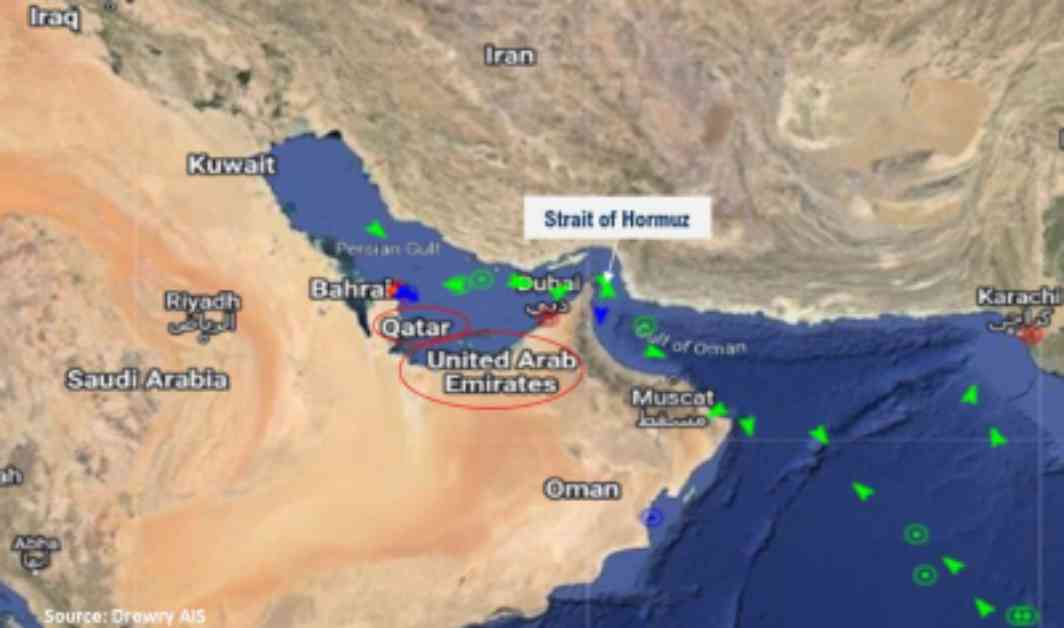Tensions between Iran and Israel have the potential to create a significant impact on regional oil and gas exports, as well as global shipping routes. If the situation escalates into a full-blown regional war, the consequences could be severe. Analysts are warning that attacks on key facilities could result in the loss of nearly 1.4 million barrels per day (bpd) of Iranian production. Additionally, a war could lead to the choking of the vital shipping lane, the Strait of Hormuz, risking up to 12 million bpd of oil.
The implications of such a scenario are far-reaching and could have serious repercussions on the global energy market. The loss of Iranian production alone would be a significant blow to the oil market, as Iran is a major player in the global oil industry. Furthermore, the potential closure of the Strait of Hormuz would disrupt the flow of oil and liquefied natural gas (LNG) through one of the most critical shipping routes in the world.
The impact of a conflict between Iran and Israel extends beyond just the two countries involved. It has the potential to disrupt the entire energy supply chain, affecting both producers and consumers around the world. The uncertainty created by such a situation could lead to increased volatility in oil and gas prices, which could have economic consequences for countries reliant on these resources.
In addition to the immediate impact on oil and gas markets, a conflict in the region could also have broader geopolitical implications. It could further destabilize an already volatile region and potentially draw other countries into the conflict. The risk of a wider regional war is a cause for concern for the international community, as it could have far-reaching consequences for global security and stability.
Given the potential risks involved, it is crucial for all parties to exercise restraint and seek diplomatic solutions to de-escalate tensions. The international community plays a vital role in mediating conflicts and preventing the situation from spiraling out of control. It is in the interest of all parties involved to find peaceful resolutions and avoid the catastrophic consequences of a full-blown regional war.
As the situation continues to evolve, it is essential for stakeholders in the energy industry to closely monitor developments and assess the potential impact on oil and gas markets. By staying informed and prepared, key players can better navigate the challenges posed by geopolitical uncertainties and safeguard the stability of global energy supply chains.

